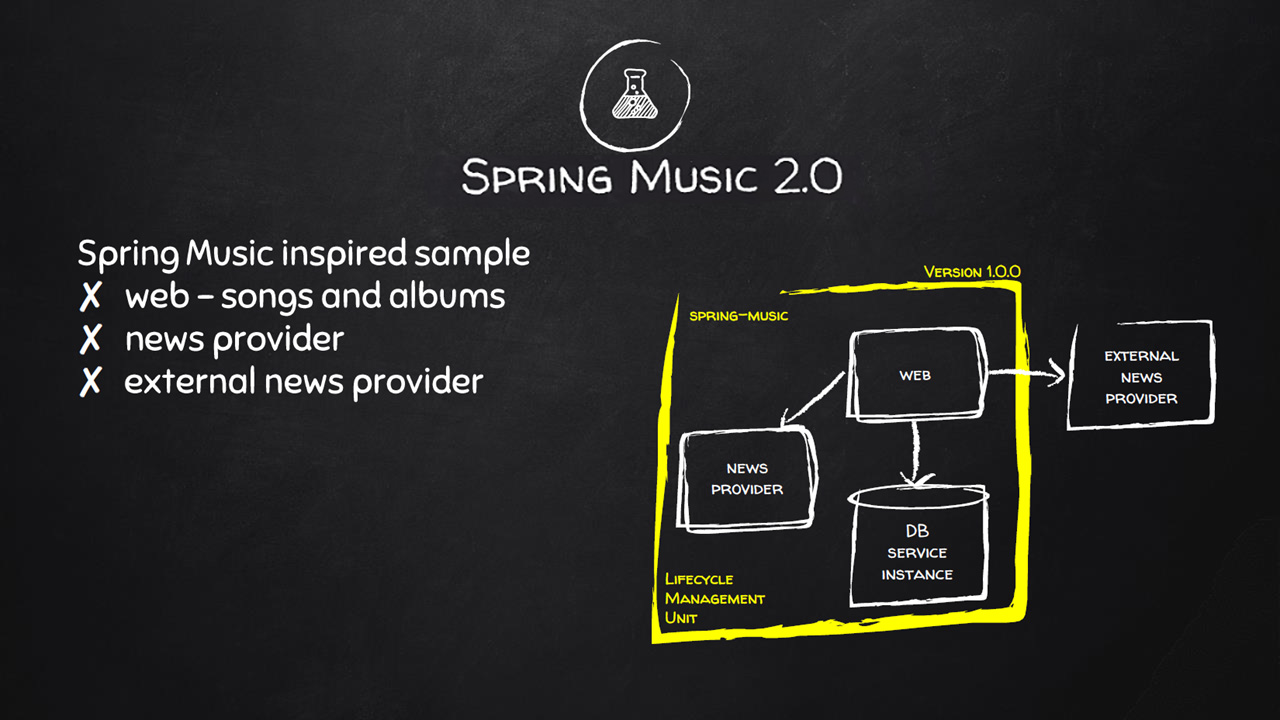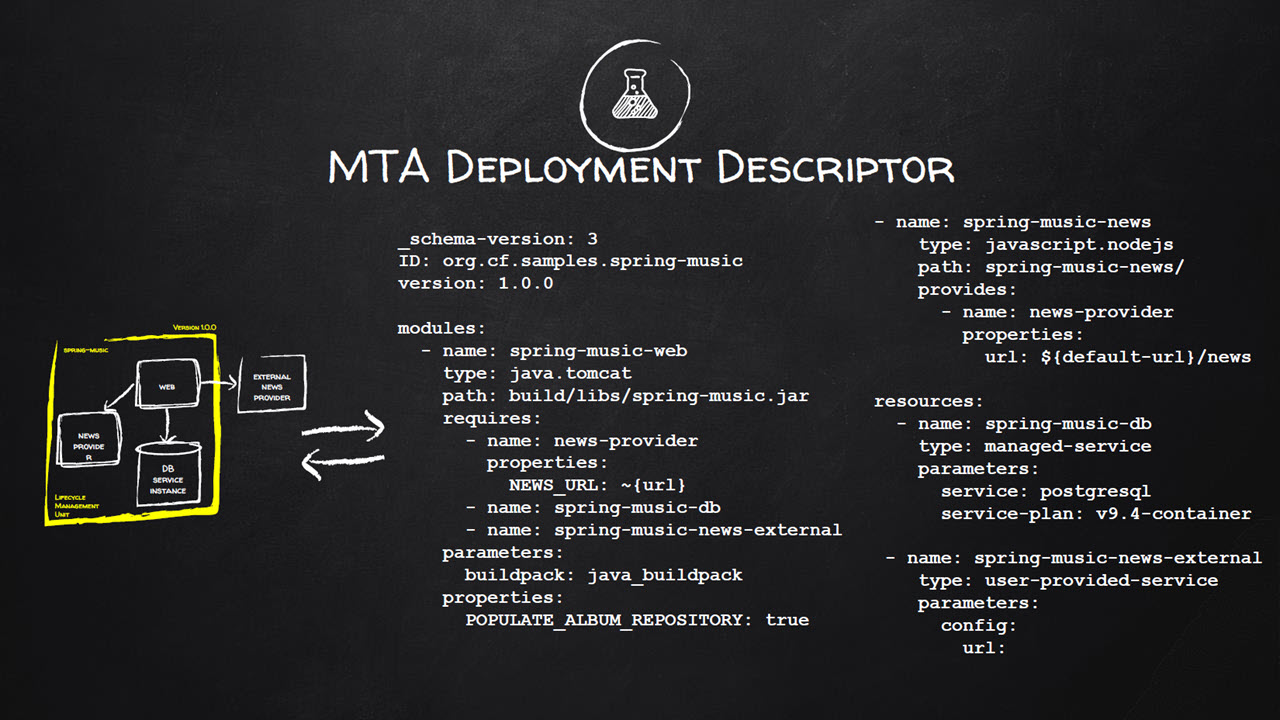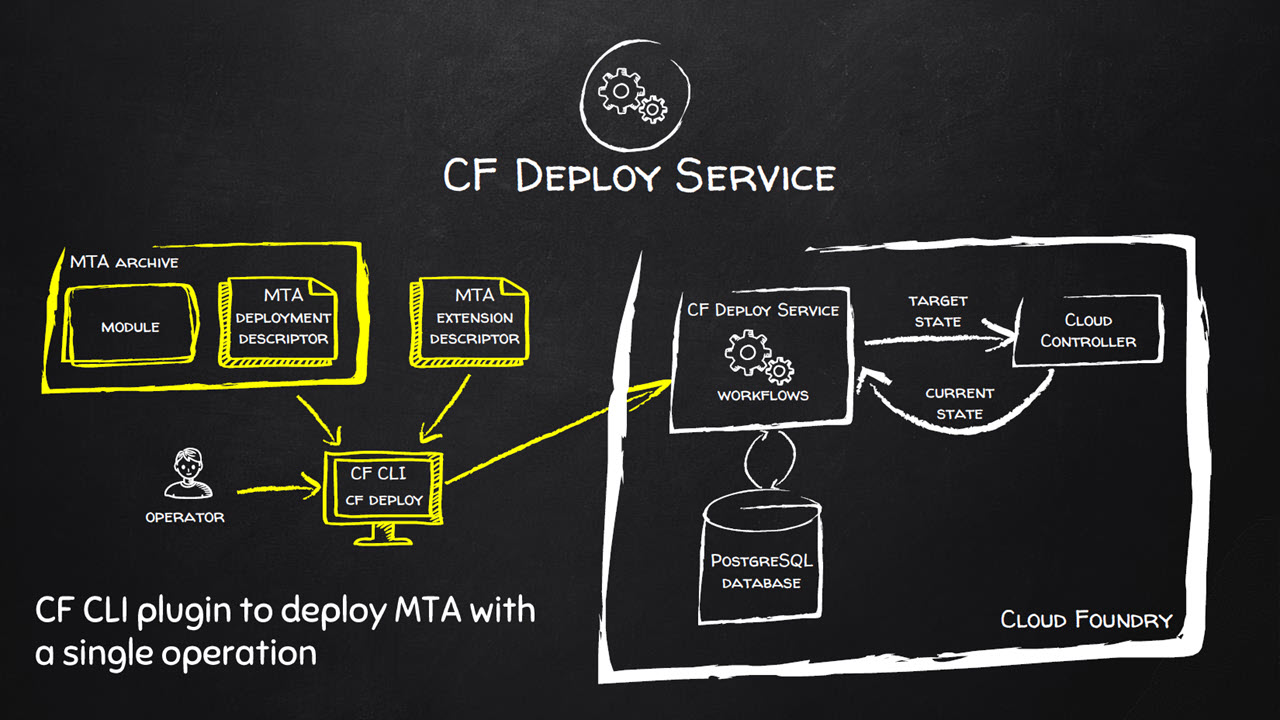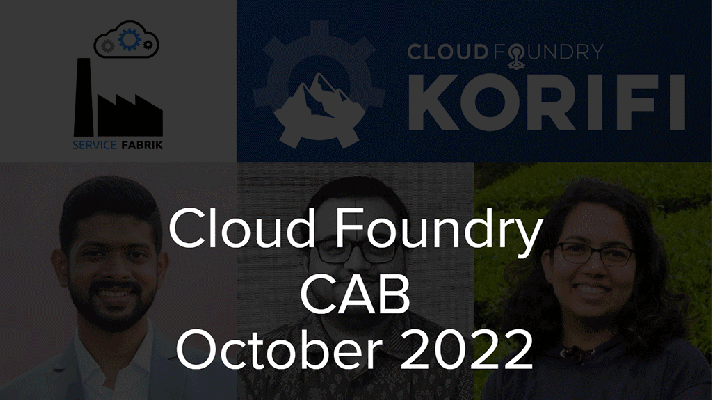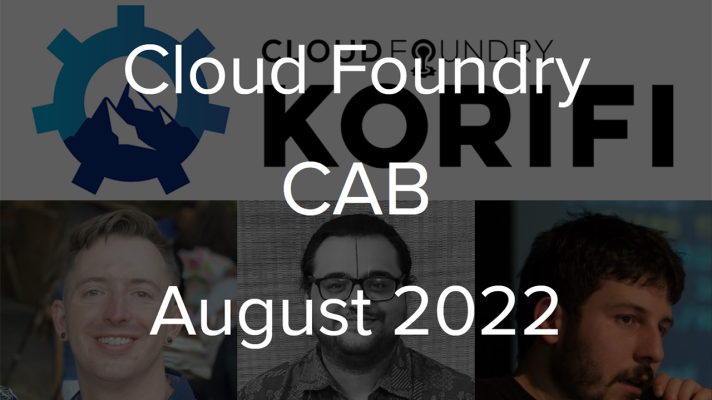Cloud Foundry Advisory Board Meeting, Jan 2018: CF MTA and BOSH Hotswap
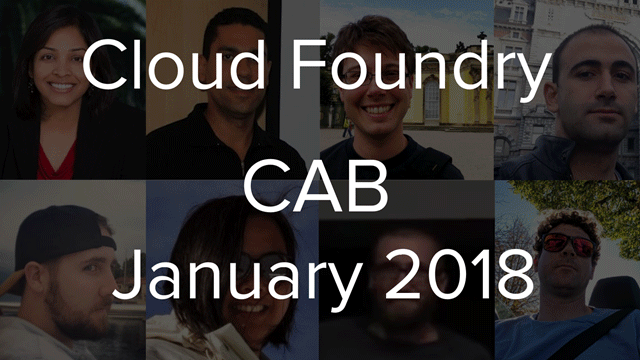
Cloud Foundry Days around the globe
January’s meeting featured several reports and a demo of a composite application controller. First up was Swarna Podila of the Cloud Foundry Foundation, and she reported on this year’s summits.
Submissions are closed for the North American event, to be held in Boston April 18–20, although suggestions are still being taken for a keynote speaker on the final day. The European summit will return to Basel, Switzerland, and is scheduled for October 10–11.
In addition, there come Cloud Foundry Days to be held worldwide. Dr. Max mentioned one being sponsored by IBM in San Francisco and another being sponsored by SAP in Sofia, Bulgaria.
SAP’s MTA project
Nikolay Valchev, an architect at SAP, presented the new CF MTA deploy service, focused on modeling and operating of composite applications on Cloud Foundry. Initiated by SAP, the project is based on the Multi-Target Application (MTA) model, in which Cloud Foundry apps are designed as modules and CF services as resources. CF MTA deploy service for Cloud Foundry allows for operating MTA-based apps (deploying, updating, undeploying) with a single command, while ensuring consistency of app components.
Dr. Max called this idea “disruptive” and will be working with the team to incubate it into the CF-Extensions program. Nikolay said he and the team had used the well-known Spring Music 2.0 implementation as their inspiration for MTA.
The secret to what SAP hopes will be the success of this project comes with its deployment setup, especially (but not limited to) some additional metadata.
Nikolay finished with a high-level overview of the MTA deployment, noting that the project is up to 1,000 deploys per day, with 1,500 separate MTAs and 100 “real apps,” and provided contact info for those interested in learning more.
Runtime PMC
Pivotal’s Eric Malm reported on the route integrity work on Diego. “We’ll roll this out soon and get feedback,” he said. Eric noted that the team is expected to cut a Diego v2.0 release soon. He had previously mentioned many developments during the recent PMC meeting on January 10:
- Progressing on new set of upgrade tests for Diego components that is less tightly coupled to Cloud Foundry components and deployment sequences.
- Declarative healthchecks ready for experimental use on Diego cells as of v1.31.0.
- Route-integrity ready for experimental use as of Diego v1.32.1.
- Envoy sidecar proxies now drain TCP traffic correctly on graceful instance shutdown.
- Diego cells detect readiness of Envoy sidecar proxies before declaring an instance healthy when declarative healthchecks are enabled.
- Locket emits request count and duration metrics periodically.
- Fixed an Docker app life cycle incompatibility with certain Docker registries introduced in Diego v1.29.0.
Pivotal’s Dieu Cao briefly discussed server-side manifests proposals, noting that a few things are being deprecated. She also said that within the PCM community, the Garden team was excited by “some of the Zenoss stuff the BOSH team is working on,” with a new kernel available in Zenoss.
After the meeting, in a message to the cf-dev mailing lists, Dieu announced that Dies Koper, the Project Lead for the CLI team, “will be transitioning to an internal project within Fujitsu. We thank him for his time serving as the CLI Project Lead.” Dieu said she is accepting nominations to replace him through January 24.
BOSH
Speaking of BOSH, Pivotal Labs’ Dmitriy Kalinin talked about CF BOSH Hotswap, “which makes swapping hot and fun again,” and discussed some developments:
- The hotswap is touching some of the internals of BOSH Director, so we are being careful and adding tests to backfill if anything is missing.
- In addition to spining up some of the deployments, this will help to unblock some of the future changes to BOSH Director, where it will improve diffing to show what will change persistent disk, VMs, etc.
- Eventually, hotswap will unblock granular deploy, which will allow users to be much more exact, as they won’t have to update other instances through the command line.
- Working on making BOSH DNS production tested with pipelines based on PWS rollout.
- Adding production data to test sweets to lock down the behavior.
- Rolling out BOSH DNS in commercial and other places.
- The SoftLayer team has some PRs to catch up on.
- The AliBaba team has been preparing their CPI reveal for official support, they are very close.
- Within the Links API, there is an API for some of the service broker integrations.
- Trying to migrate to BOSH Process Manager (BPM) for the next BOSH release.
- BPM running at 10% on PWS currently for Diego.
- Xenial stemcells in progress but slated to release soon, few things investigating left.
Dimitryi referred people to BOSH notes if they want to dig even deeper.
BOSH GitHun repo | Hotswap’s Pivotal Tracker
Loggregator
Pivotal’s Adam Hevenor reported about “tradeoffs around streaming of logs and log ordering, and how to use the time stamp to best achieve time techniques.” He noted how CF CLI “does its best effort at ordering by batching logs and displaying them, but that functionality was removed (at one point) and only recently added back in.”
Those interested in the topic can check out Adam’s post, where he, for instance, exemplifies techniques that enable a client to display a stream of logs to users. “For web clients, you can use dynamic HTML to insert older logs into the sorting as they appear. This is nice, because by the time a user grabs the content for a copy paste, it will likely be both complete and in order.”
Open Service Broker API
Pivotal’s Alex Ley provided notes about several developments from his team:
- Making progress on Open Service Broker API v2.14 spec, targeting Feb 2018 release.
- CF Services API and Service Catalog SIG are working on validation through the implementation of Async Bindings and GET endpoints spec changes.
- Async bindings now supported in Service Catalog.
- Service Broker “Actions” proposal making progress with a dedicated working group.
Open Service Broker API’s GitHub repo
What’s next?
The 2018 calls will be held on the third Wednesday of each month, as in 2017. So far, they are scheduled at 8 a.m. Pacific Time, although Dr. Max said that may move around a bit to accommodate people in Asia and Australia.
The February call is scheduled for February 21. The calls last strictly one hour, and are always open to anyone who is interested in listening in or participating. Sign up for the Cloud Foundry Slack channel to learn what’s going on with the calls and with the community in general.
Want details? Watch the video!





